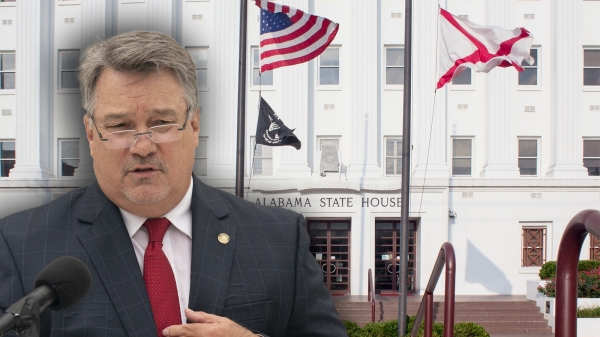By Brandon Moseley
Alabama Political Reporter
On Thursday, June 26 Congressman Spencer Bachus (R) from Vestavia said that Thursday’s Supreme Court unanimous ruling that recess appointments made by President Barack Hussein Obama (D) to the National Labor Relations Board were unconstitutional is welcome news.
Representative Bachus said, “A ruling that could help begin to curb the executive overreach that we have seen repeatedly from this Administration is welcome news. As Chairman of the House Financial Services Committee, I raised the issue of recess appointment abuse when the President installed a new director at the Consumer Financial Protection Bureau without confirmation by the Senate. Unfortunately, this has been part of a pattern of aggressive unilateral actions by this President and I plan to continue to work with my colleagues in Congress to reaffirm the separation of powers doctrine that is a foundation of our Constitution.”
Representative Bachus said then that President Obama’s use of his recess appointment authority to install a director at the Consumer Financial Protection Bureau (CFPB) was unconstitutional. At the time Rep. Bachus was the Committee Chairman of the Financial Services Committee. Bachus currently serves as the Chairman Emeritus. President Obama followed up the controversial appointment to the CFPB by stacking the National Labor Relations Board with cronies……both without getting the consent of the U.S. Senate.
State Representative Mack Butler (R) said on Facebook, “We have a president out of control. The US Supreme Court has ruled as unconstitutional Obama’s recess appointments to the National Labor Relations Board which bypassed the Senate. This will now call into question more than 1000 of their rulings.”
On May 27, 2011 Chairman Bachus wrote, “Because the Dodd-Frank Act places so much authority — with so little accountability — in the hands of the director of the new Consumer Financial Protection Bureau, the law requires that this administrator be nominated by the president and confirmed by the Senate. Yet there are now rumblings the president may circumvent the Senate’s advice and consent — and ignore the law he signed — by filling the bureau’s directorship through a recess appointment.”
Chairman Bachus continued, “A recess appointment in this circumstance would be inappropriate and is inconsistent with the Constitution. Article II provides that the president has the “power to fill up all vacancies that may happen during the recess of the Senate.” But this directorship did not “happen” to become vacant. It is a position that never before existed. Thus, there is no vacancy to fill.”
Rep. Bachus wrote, “The position must have existed and been occupied by another officer for it to be temporarily filled without Senate confirmation. But the CFPB office has never been occupied. If the president made a recess appointment, it would not be pursuant to any act of Congress or the Constitution.” “If the president were to resort to a recess appointment to name the first director, whatever regulations the bureau adopts could be immediately challenged on constitutional grounds — and would very likely be overturned based on the text, history and cases that have interpreted the recess-appointments clause.”
Bachus wrote in 2011, “The uncertainty arising from the appointment, the questionable validity of whatever regulations are adopted by this “director” and the inevitable litigation are all strong policy reasons that the president should avoid trying to end run the requirement of Senate confirmation. The president is free to nominate whomever he pleases. But as the Founding Fathers realized — and every child knows — our government is a system of checks and balances. Because the bureau will be, effectively, whatever its director wants, the legitimacy of the bureau depends on ensuring that its director is nominated and confirmed in accordance with the requirements of both Dodd-Frank and the Constitution.”
On Thursday, June 26 the Supreme Court validated Congressman Bachus’s views. The unanimous decision in Canning v. NLRB, the Supreme Court struck down President Obama’s “recess appointments” to the powerful National Labor Relations Board. The question was simple: Was the Senate in recess or in session when it was in a so-called “pro forma” session.
The Supreme Court wrote, “In our view, however, the pro forma sessions count as sessions, not as periods of recess. We hold that, for purposes of the Recess Appointments Clause, the Senate is in session when it says it is, provided that, under its own rules, it retains the capacity to transact Senate business. The Senate met that standard here.”
The Chief Counsel of the American Center for Law and Justice (ACLJ), Jay Sekulow wrote, “We represented the Speaker of the House, John Boehner, in the case, filing a brief on his behalf. The case represented a key victory for the Speaker and the House itself, since the House has a high degree of control over even the Senate’s schedule. The bottom line is simple: The President will not be able to circumvent the Senate’s “advise and consent” through recess appointments without the consent of both houses of Congress. Today is a good day for the separation of powers.”






















































